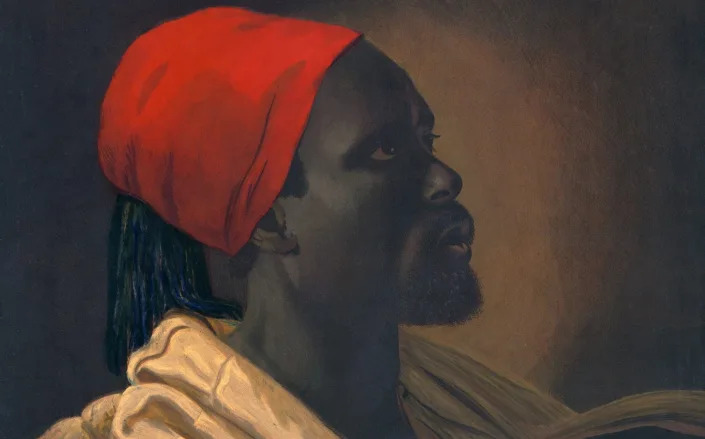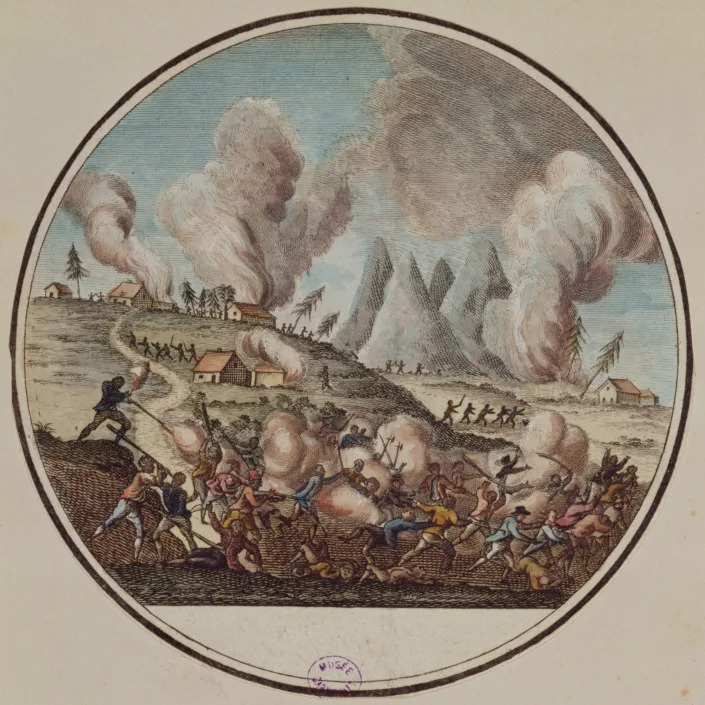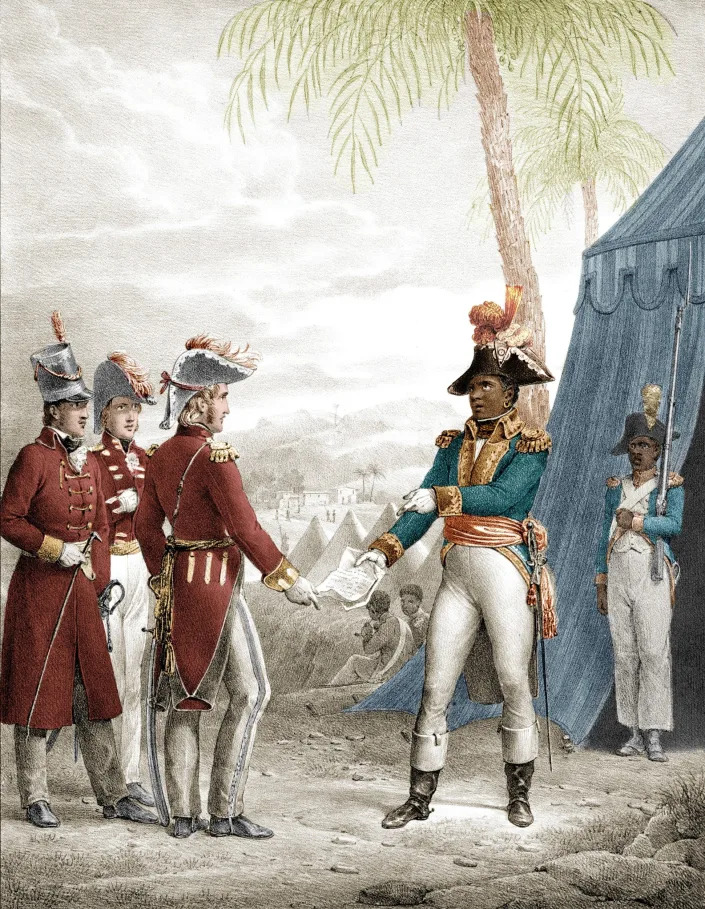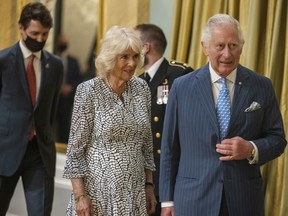Story by Leyland Cecco in Toronto •
The Guardian

Photograph: Tim Graham Photo Library/Getty© Provided by The Guardian
More than 800 dives beneath metres-thick ice were not enough to prepare Joe MacInnis for the stress of bringing a member of the British royal family deep into the blisteringly cold depths of the Arctic Ocean. Especially a future king.
“This is one of the most hostile places on the planet and hazards are everywhere,” he said of the waters near Qausuittuq, an Inuit hamlet on the north shore of the Northwest Passage, where the royal dive took place in 1975. “So yes, I was nervous.”
MacInnis, the famed Canadian scientist and explorer, guided then-Prince Charles through a two-metre deep shaft cut through the ice to give access to the ocean.
As they moved through the water, Charles seemed enraptured by ice stalactites and tiny amphipods, later commenting on his love for the “sacred qualities” of the natural world.
Half a century later, MacInnis sees that moment under the ice as a reflection of the broader challenges the new king will face.
“With Charles, you have a set of eyes that have seen a world under the ice as well as on the surface – and are less able than he’d like to make the changes that are needed to fix things,” said MacInnis.
“As a scientist, I’ve watched as this world slowly cascades into a different kind of place. And there’s a real feeling of helplessness.”
As the coronation of King Charles III approaches, the monarchy is at a crossroads in Canada, with the country increasingly apathetic towards a new head of state.
But Charles’s ascension comes at a time when the causes he has long championed –combatting the climate crisis and repairing the damaged relationship with Indigenous peoples – are central to Canada’s national conversation.

Joe MacInnis and the then Prince of Wales prepare to dive below thick ice in 1975. Photograph: Anwar Hussein/Getty© Provided by The Guardian
As a commonwealth country, Canada will formally commemorate the king’s coronation with a series of speeches, performances and artistic events planned in the nation’s capital.
The solemn ceremony will be broadcast on televisions across the country, but – unlike Elizabeth’s coronation 70 years ago, when many students were given the day off – school boards across the country have made no special plans to mark the occasion.
“This is very much about Canadians considering whether they wish to have somebody born and raised in another country, who got their job through hereditary title, continuing to be Canada’s king and Canada’s head of state,” said Shachi Kurl, president of the non-profit Angus Reid Institute.
Kurl points out that demographic shifts have dramatically reshaped the country’s makeup since the last coronation.
“Culturally, linguistically, ethnically, Canada [today] is not the Canada of 1953,” she said. “The last bastions of monarchic support in this country tend to be among older, more conservative people.”
Less than 10% of the population consider the coronation an important event. “Forget it being the most important event of the decade or century or of their lifetime – only 9% say it’s the most important day of the year,” she said.
Charles has made 18 official visits to Canada since 1970 and has expressed a deep love of the country, the second-oldest Commonwealth realm.
“Every time I come to Canada … a little more of Canada seeps into my bloodstream and from there, straight to my heart,” he told a crowd of supporters in Newfoundland in 2009.
Related: Canada’s ties to crown are loosening but cutting them could be tall order
And yet, the monarchy has increasingly fallen out of favour with Canadians, a majority of whom would prefer to see it abolished.
For some, the pomp surrounding the upcoming coronation – the orbs, sceptres and holy oils – feels like a relic of the past. For others, the crown bears both the weight of history, and the responsibility for centuries of injustice against Indigenous peoples, who were dispossessed from their lands through broken treaties and failed promises.
John Geiger, chief executive officer of the Royal Canadian Geographical Society, said Canada’s unique constitution meant severing ties with the monarchy would be a near-impossible task that few politicians would want to take on.
He sees the coronation on 6 May as a moment to help Canadians better understand the structure of the country’s government.
“The crown is central to our constitution. And that’s not about to change. Charles might not be a young man and he’s had some personal baggage,” said Geiger.
“But while he represents a role that is ancient, his views are somewhat visionary, especially his concerns over climate change and the environment. In a way, he’s the right guy for the moment we’re in.”
In his visits to Canada, Charles has prioritised visiting Indigenous communities, which have borne the brunt of racist colonial policies and, more recently, the effects of a changing climate.
On a recent trip to Canada, Charles endorsed the Truth and Reconciliation Commission’s 94 calls to action, as well as the UN Declaration on the Rights of Indigenous Peoples Act, but has stopped short of formally apologising for the crown’s complicity in Canada’s residential school system.
The relationship between Indigenous peoples and the British royal family is also complex: the arc of Canadian history is one of broken promises, dispossession and overt attempts to erase Indigenous cultures. But the relationship predates Canada itself, and was founded in treaties signed in the 1700s.
Related: UK faces reckoning after unmarked Indigenous graves discovered in Canada
“Nations make treaties, treaties do not make nations … the sanctity of this covenant was made between not just [the] crown of Great Britain, but with the creator and all of our grandmothers’ and grandfathers’ spirits bearing witness,” said Perry Bellegarde, the former national chief for the Assembly of First Nations. “That’s why we say there’s a sacred covenant that cannot ever be broken.”
Many Indigenous people feel that when the crown devolved responsibilities of governance to Canada’s federal government, the spirit of those treaties was damaged and the government put in place overtly racist policies, like the Indian Act, which Indigenous leaders have been trying for decades to abolish.
Despite waning public support for the monarchy and a career spent advocating for Indigenous self-determination, Bellegarde nonetheless sees Charles as a key ally and friend.
“The power of the monarchy is a modern one – because he has the ability and the power to bring people together.
“He can convene CEOs, prime ministers and presidents and Indigenous leaders to work on the issues that really bind us together: climate change and biodiversity loss.”
In 2001, alongside the late Elder Gordon Oakes, Bellegard gave Charles the Cree name Kīsikāwipīsimwa miyo ōhcikanawāpamik, meaning “the sun watches over him in a good way” and draped him in a star blanket, a nod to the importance of the relationship between the crown and Indigenous nations.
“What a fitting name, because of his commitment to the environment. It even speaks to the nature of the treaties, that they will last as long as the sun shines, the rivers flow and the grass grows.”
“These treaties will remain in effect for generations now and those yet unborn.
“And at his coronation, he will carry that name too – and the relationship that we have with him.”



















